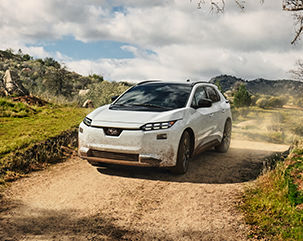Why is the cost of charging so much less at home? Just adding a middleman? $3500 to install a charger does seem like a lot.
As more EVs are adopted it could push the cost of gas down and the cost of electricity up. It could also make electricity more volatile? Or if regulated, less available.
Let's step back a sec, please.
Charging is more expensive at a L3 charger because it is very high speed (fill up a tesla in like 20 minutes but I don't really know teslas) and someone paid for the infrastructure to put them out there. Many makers offer lifetime or set period of time use. Harv in your current use case you would be using L3s more than almost anyone during ski season, and even those rates are cheaper than gas.
Charging is less at home (L1 or L2 depending on volts and amps) because you pay the utility rate. And because EV's are much more efficient that Gas (think about all the heat and noise coming from gas - that is energy changed from chemical state to kinetic state), they are 'pound for pound' cheaper, particularly adding in things like regen brakes which take wasted friction (kinetic) energy from when you stop. Hybrids do that last one, too.
I have actually done some (too much research). In a HCOL area, it costs 750 for EVSE (charger) that will fill up basically any EV overnight. NJ and NY utilities will basically give you a rebate down to 250 and reduce the electric cost off off peak rates by 25% if you use that charger (they get info and a promise from you to give them your charging draw so they can plan for future). Then in HCOL it costs 750 to install. So that is 1,000 for very convenient charging.
As someone noted (Tirol?), if you don't want to spend any money other than a bit for a chord (and mos EVs include a 10 foot chord), you could plug into most drier outlets and get around 70% of the high speed charging effect so long as it is 240 volts.
To figure out how long it takes to charge an EV, know your voltage to an outlet (220 for big draw items), then know the amperage output of the specific outlet combined with breaker (eg 48 amp will allow you to draw 40 for safety reasons but leave that to the electrical engineers or electricians here); Then you can convert that into kilowatts with internet calculators. That will tell you KW per hour; then you divide that into the KW of the battery and you get hours to fille.
Then, as noted, if you work with your utility, they will give you a good discount in exchange for your using a system that lets them see how much you pull overtime.





